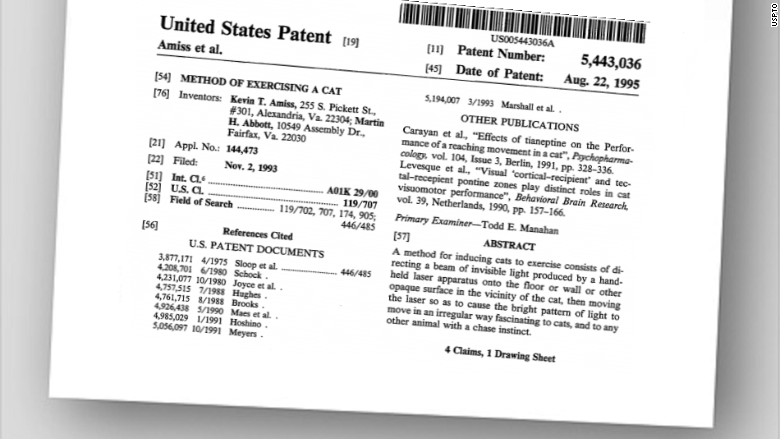
Got a patent that you're hoping to sell? Google wants to hear from you.
Google (GOOGL) is setting up an experiment from May 8 to May 22 during which inventors can send pitches to sell their patents to the search company.
It sounds like a radio ad from a patent troll, in which deep pocketed patent collectors offer buy intellectual property from small inventors. But Google says it is interested in adding the patents to its portfolio, saying it might make money off the patents by licensing them to other companies. Google has also used its growing patent portfolio to stave off patent lawsuits.
The search company said it also wants to make patent sales easier for inventors.
"Unfortunately, the usual patent marketplace can sometimes be challenging, especially for smaller participants who sometimes end up working with patent trolls," said Allen Lo, Google's chief patent lawyer, in a blog post. "Then bad things happen, like lawsuits, lots of wasted effort, and generally bad karma. Rarely does this provide any meaningful benefit to the original patent owner."
After Google's two-week experiment, it will review the submissions, aiming to get back to the inventors by the end of June and pay them by late August.
In the too-good-to-be-true department, Google notes that "there's some fine print that you absolutely want to make sure you fully understand before participating" and "we encourage participants to speak with an attorney."
The U.S. patent system is royally screwed up, with patent trolls wreaking havoc on intellectual property holders large and small. Patent trolls have cost innovators $500 billion in lost wealth from 1990 through 2010, according to a Boston University study. The average patent lawsuit results in $122 million in lost wealth for the defendant, with a median loss of $20.4 million.
Some patent trolls have been eager to buy inventors' patents in the hope of making money by suing patent infringers. Often, those patent collecting companies will pay the original patent holder a portion of the money that the company gained through litigation.
Since defending and licensing a patent can be expensive and confusing work, selling to a company like Google might be appealing to some inventors.

